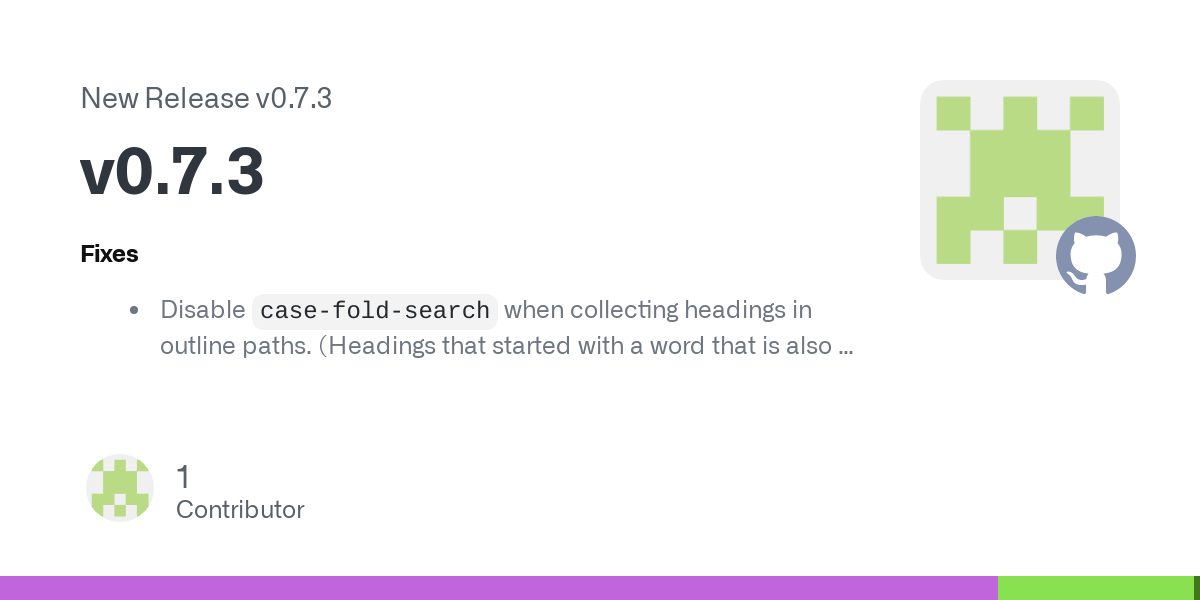I will rate your setup a 9/10 if you include prism.el. Why? …Why not?
- 2 Posts
- 41 Comments

 1·11 months ago
1·11 months agoYou know the discussion’s gone off the rails when LWN picks it up. I’ve been biting my tongue at times while reading it (and now glad that I kept silent…but then, look at me now).
I can’t fathom the objections to using
cl-lib, especially since something as basic as the built-in debugger already uses it. Elisp is a very pleasant language to work in, but withoutcl-libit would be missing basic functionality.It boggles my mind to see how some people seem to want to write Lisp as if it were C. As an experienced CL hacker I’ve seen often asks, “Is that the level of abstraction you want to be working at?” These forms from CL allow working at higher levels, treating the lower levels as solved problems that need not be re-engineered at each invocation. They don’t increase the cognitive burden–they significantly reduce it, especially when it comes to reading others’ code. By using those standard solutions, we stand on the shoulders of giants.
And
pcaseis, as far as I’m concerned, a masterpiece of programming, a tool I sorely miss when working in any other environment. I really hate to see this incredibly useful contribution of Stefan Monnier’s disparaged, especially when much of the criticism merely comes from unfamiliarity and NIHism. (The use of backquote patterns with unquoting to destructure patterns, the same way they’re used to construct the same values, is brilliant and naturally Lispy. And the extensibility and modularity ofpcaseis excellent–compare to, e.g.cl-loop’s implementation (another macro I like to use, but it’s not easily extended).)Some of the worst has been to see the disingenuous argumentation presented in these threads on emacs-devel. I’ve seen a lot of hypocrisy and insulting, passive-aggressive attitudes, blaming one person for what the other is himself doing. It wasn’t but a few weeks ago that I noted in another thread how off-putting the discussions can seem to newcomers, only to be told that such impressions are incorrect and invalid–and now to see such awful behavior between people who have effectively been colleagues for years. Is this how we will keep Emacs alive for another 40 years–by artificially holding back the language and viciously attacking those who object?
I think the fundamental question is, is all this worth it? Of all the things to spend the very limited programmer time available, to spend it on rewriting working code to use more awkward and verbose constructs because ideas from Common Lisp have cooties? (Forgive me, but that seems to be what it boils down to.) It’s disappointing.
Thanks. A screenshot would be helpful, too. :)

 1·11 months ago
1·11 months agoHm, yeah, imagine some kind of service that takes a question from a user and posts it on Reddit, then feeds the answers into its own ML model and gives something back to the user (with a significant delay, obviously, so maybe more for training purposes).
There was a post here within the past couple of months that, when I looked at its account history, seemed to be obviously some kind of bot, but its writing was coherent enough to seem authentic in isolation.
Seems like a dark time for the Web is coming. :/

 1·11 months ago
1·11 months agoIt does look nice!

 1·11 months ago
1·11 months agoI’ve no objection to writing another static site generator for Emacs/Org. But the name “One” is so overused. Seems like every company has “Foo ONE” and “Bar ONE”. Up til now, Emacs hadn’t fallen into that trap… ;)
Anyway, thanks for sharing your work.

 1·1 year ago
1·1 year agoI’ve written about this on my blog too, where you can see the [unsurprising] results of the analysis!
Of course everyone loves to hate on Wesley, but let’s face it, he’d probably be the Emacs geek who was constantly talking about this new thing he just did in Emacs, and everyone would be tired of hearing about it. :)

 1·1 year ago
1·1 year agoPlease read that issue and post a reply to it with the version of Emacs you’re using and the backtrace. And please test the branch in the comment that may fix the problem. As you can see, it’s been several months since anyone provided feedback, so the fix may already be available, but it needs user confirmation.

 1·1 year ago
1·1 year agoYes, but all those parts that I don’t use have cooties! ;)

 1·1 year ago
1·1 year agoThis sounds very useful. Can it or its functionality be upstreamed?

 1·1 year ago
1·1 year agohttps://github.com/alphapapa/burly.el: Expressly designed to solve this problem. Use with
tab-bar-modeandburly-tabs-mode.See also: https://github.com/alphapapa/bufler.el with
bufler-workspacecommands.

 1·1 year ago
1·1 year agoIs it just me or have there been a lot of posts lately from accounts with overall negative comment karma.

 1·1 year ago
1·1 year agoIt might seem like a subtle improvement to you but I really think it actually achieves the goal of making it so that you can kind of get the structure of the code just from glancing at the colors.
Structure, from colors. I don’t know, I have never tried to infer structure from colors in the code.
This is what prism.el provides: color reflects logical depth, which signifies the primary aspect of structure. IMHO it is generally more useful than making function names stand out (their position makes them stand out anyway), variable declarations a certain color (though helpful, I don’t need to see that constantly), etc. A well-written piece of code communicates a lot by its shape, which logical colorization helps to reveal.

 1·1 year ago
1·1 year agoI didn’t say it would be easy. ;)

 1·1 year ago
1·1 year agoI guess you should try Commercial Emacs, then.
can someone help or give me some YT videos to watch to have a good idea about emacs ?
I hesitate to be the curmudgeon here, but if you can’t–or won’t–bother to visit youtube.com and type “emacs” into the search box, then you probably won’t enjoy using Emacs. Emacs is most appreciated by people who take a bit of initiative.
I get nothing.

 1·1 year ago
1·1 year agoPlease do not answer if you are not willing to tell me exactly what to put in my init.el file.
Please do not ask if you are not willing to google your question first. We are not ChatGPT.

 1·1 year ago
1·1 year ago“i want a video or a proof” that you googled these questions and found no answers
Since this question is asked at least weekly, you should have.
We do users like this no favors by indulging them.


EmacsConf 2023 just wrapped up, but you can watch the prerecorded talks here: https://emacsconf.org/2023/